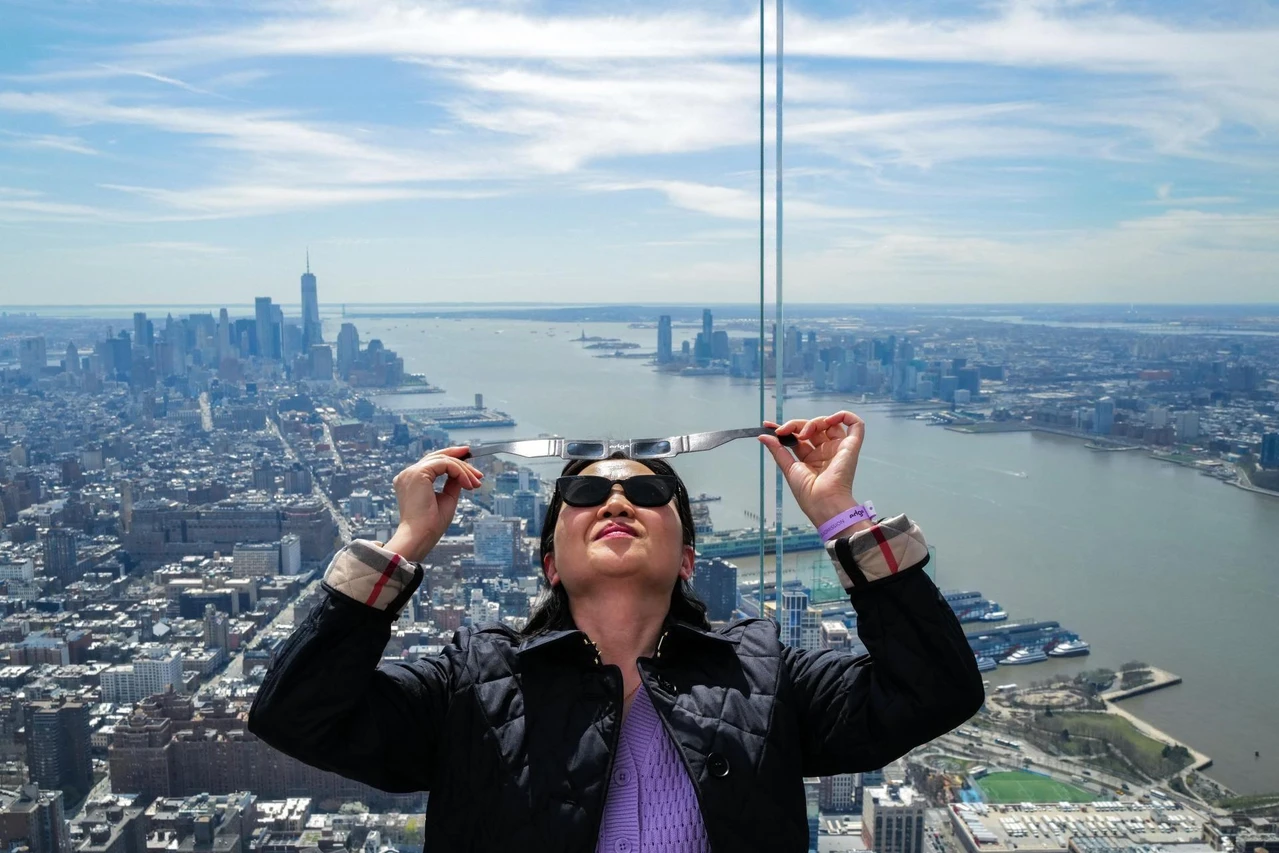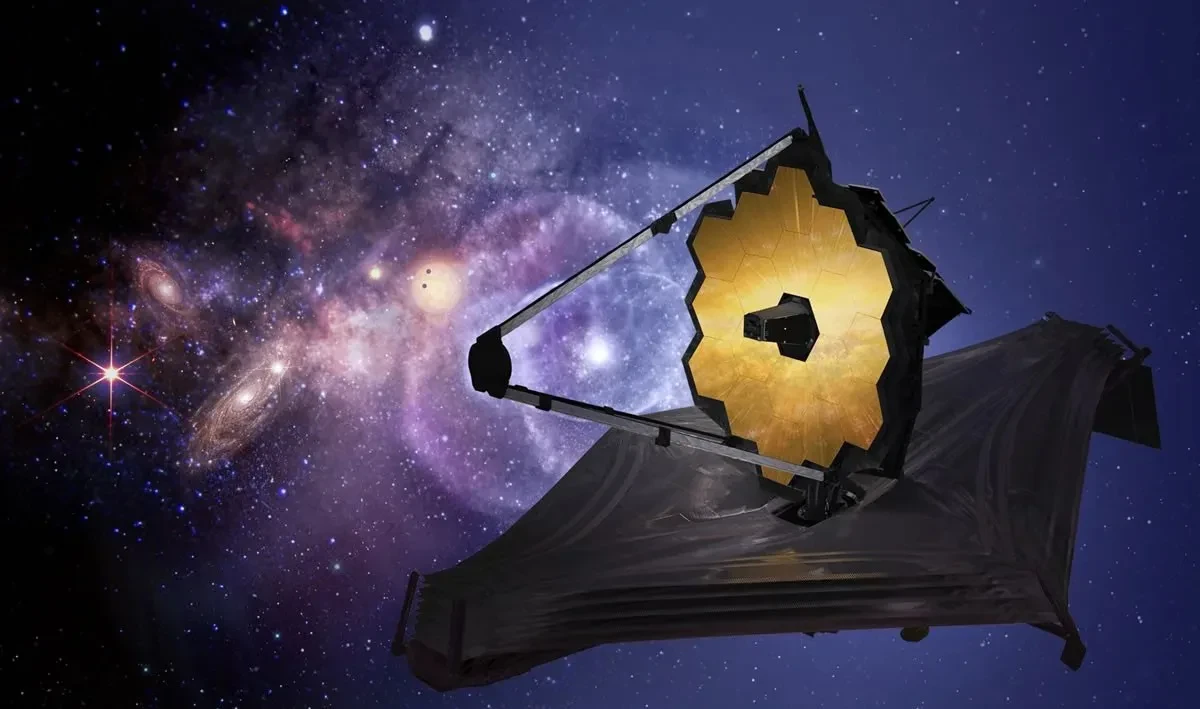Solar eclipse excitement sweeps across North America

The Moon’s shadow plunged the Pacific coast of Mexico into total darkness at 11:07 a.m. local time (1807 GMT) and was sweeping across the United States
North America is ablaze with excitement as a rare cosmic event, promising a convergence of scientific wonder and commercial opportunity, captures the imagination of millions. Eclipse mania has gripped the continent, heralding a breathtaking spectacle set to be witnessed by tens of millions.
The Moon’s shadow plunged the Pacific coast of Mexico into total darkness at 11:07 a.m. local time (1807 GMT) and was sweeping across the United States, before returning to the ocean over Canada’s Atlantic coast just under an hour-and-a-half after landfall.
Festivals, viewing parties, and even mass weddings were planned along the eclipse’s “path of totality,” where the Moon could be seen completely obscuring the Sun for up to a few minutes – weather permitting. Cloud cover was forecast over Texas and northeastern US states.
Mexican President Andres Manuel Lopez Obrador visited Sinaloa to witness firsthand the eclipse from the resort of Mazatlan, describing the event as a “very beautiful, unforgettable day.”
Thousands gathered in Mexico City, just outside the path of totality.
“These are opportunities given by Earth and nature that we must seize,” 29-year-old artist Mariana Juarez told Agence France-Presse (AFP).
This year’s path of totality is 115 miles (185 kilometers) wide and home to nearly 32 million Americans, with an additional 150 million living less than 200 miles from the strip.
The next total solar eclipse that can be seen from a large part of North America won’t come around until 2044.
Freaking nuts
Businesses capitalized on the excitement with special events, while hotels and short-term rentals in prime viewing locations were booked solid for months in advance.
At the Stonehenge II park in Ingram, Texas – a replica of the prehistoric arrangement of stones in England – eclipse watchers gathered from across the world.
“Even if it’s cloudy, it’s going to get unbelievably dark, especially with clouds,” said Jeff Snyder, a 68-year-old engineer who traveled from California along with his wife and had brought his telescope.
“Everybody’s gonna go freaking nuts and you will hear screams.”
In Cleveland, where local officials expected some 200,000 visitors, the Rock & Roll Hall of Fame planned a four-day “Solarfest” of live music.
And in Russellville, Arkansas, more than 300 couples were reportedly set to exchange vows at “A Total Eclipse of the Heart” mass wedding ceremony.
Delta Airlines has planned two special flights along the path, while many schools in the zone shut for the day.
Research firm Perryman Group estimates direct and indirect economic impacts of this year’s eclipse could reach $6 billion.
Scientific windfall
Then there’s the science. NASA planned to launch a trio of sounding rockets before, during and just after the eclipse to measure changes caused by the sudden darkness of the ionosphere, an upper layer of the atmosphere important for long-distance radio communication.
The eclipse also offered a golden opportunity to study the Sun’s corona, the outer layer of its atmosphere which is normally hidden by the blinding light of the surface.
Startling animal behavior has been noted during past eclipses: giraffes have been seen galloping, while roosters and crickets can start crowing and chirping.
NASA has invited the public to contribute to research through its citizen-science project Eclipse Soundscapes, by recording the sounds of nature.
In humans, eclipses trigger feelings of awe as we confront our tiny place within the vast cosmic order, research has revealed. Individuals exhibit more “prosocial” feelings towards each other in the aftermath of the shared experience.
Safety first
Former president Donald Trump, who notoriously gazed directly at the Sun during the 2017 eclipse, attempted to capitalize on the phenomenon by releasing a new campaign ad featuring his larger-than-life head blocking out our star.
Health professionals have stressed however not to follow his example, urging people to use certified eclipse glasses to prevent potentially permanent retinal injury. President Joe Biden made fun of Trump with a social media post saying “Don’t be silly, folks.”
Only those within the path of totality can safely remove their eye protection and admire the corona peeking out from behind the silhouette of the Moon for a few precious moments.
Source: AFP



